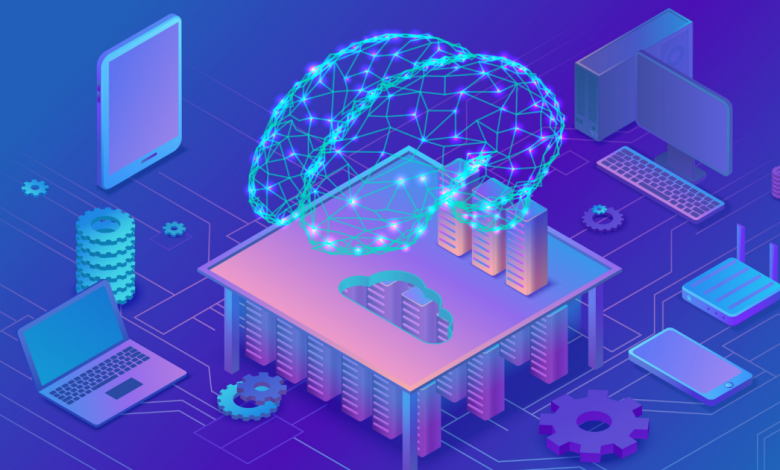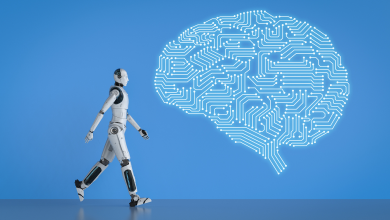The World of AI: How Much Time We Have Until it Takes Over

Artificial Intelligence (AI) has become an integral part of our daily lives, revolutionizing industries, automating tasks, and enhancing efficiency. As we witness the rapid advancements in AI technology, a question looms on the horizon: how much time do we have until AI takes over? The answer is complex, involving considerations of technological development, ethical considerations, and societal readiness.
Current State of AI:
AI has made remarkable strides in recent years, from natural language processing and image recognition to machine learning and deep learning algorithms. Industries like healthcare, finance, and manufacturing are leveraging AI to streamline processes and make data-driven decisions. While AI is undeniably powerful, the idea of it “taking over” is multi-faceted and extends beyond Hollywood portrayals of sentient robots.
Narrow AI vs. General AI:
It’s essential to distinguish between Narrow AI, which is designed for specific tasks, and General AI, which possesses the ability to perform any intellectual task that a human can. Currently, we are in the era of Narrow AI, where machines excel at well-defined tasks but lack the broad cognitive abilities of humans. General AI remains more speculative and poses both technological and ethical challenges.
Technological Progress:
The pace of technological progress in AI is breathtaking. However, predicting when AI will surpass human intelligence is a daunting task. Some experts believe we are decades away from achieving General AI, while others argue that unforeseen breakthroughs could accelerate the timeline. It’s crucial to monitor research and development in the field to gauge the trajectory of AI advancement.
Ethical Considerations:
As AI continues to evolve, ethical considerations become increasingly important. The responsible development and deployment of AI require addressing issues like bias in algorithms, data privacy, and the impact on employment. Striking a balance between innovation and ethical safeguards is crucial to ensuring that AI benefits society as a whole.
Societal Readiness:
Even if AI reaches a level of sophistication where it could theoretically “take over,” societal readiness plays a significant role in determining the actual impact. Regulatory frameworks, public perception, and the integration of AI into existing systems all influence how smoothly and responsibly this transition could occur. Building trust in AI systems is paramount for their acceptance and adoption.
Collaboration Between Humans and AI:
Rather than viewing AI as a threat, a more optimistic perspective is to see it as a tool that can augment human capabilities. Collaboration between humans and AI can lead to innovative solutions, improved decision-making, and increased efficiency. Striking a balance where AI enhances human potential without replacing it entirely is a key consideration for the future.
Job Displacement vs. Job Creation:
Concerns about job displacement due to AI are valid, but history has shown that technological advancements often lead to the creation of new jobs. As routine tasks become automated, there is a shift towards roles that require creativity, critical thinking, and emotional intelligence—areas where humans excel. Adapting education and training programs to prepare the workforce for the evolving job landscape is essential.
AI in Governance:
The role of AI in governance is another critical aspect. As AI systems are integrated into decision-making processes, transparency, accountability, and fairness become paramount. Developing robust governance structures and ethical guidelines will be essential to prevent unintended consequences and ensure that AI aligns with societal values.
Unintended Consequences:
The development of AI is not without risks. Unintended consequences, ethical lapses, and the potential for misuse require careful consideration. Responsible AI development involves anticipating and addressing these challenges to ensure that AI benefits humanity without causing harm.
The Need for Continued Dialogue:
The world of AI is dynamic and constantly evolving. As we navigate the complexities of AI advancement, an open and inclusive dialogue involving technologists, ethicists, policymakers, and the general public is crucial. Engaging in discussions about the ethical, social, and economic implications of AI will help shape its future in a way that aligns with human values and aspirations.
In conclusion, predicting the exact timeline for AI to “take over” is challenging, given the multifaceted nature of the question. While we are witnessing unprecedented progress in AI technology, achieving General AI poses significant challenges that extend beyond the technological realm. Ethical considerations, societal readiness, and responsible governance will play pivotal roles in determining how AI integrates into our lives. Rather than fearing a takeover, the focus should be on fostering a collaborative relationship between humans and AI, ensuring that these technologies contribute positively to the advancement of society.




